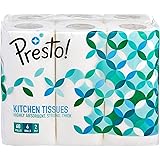Ambrane MagSafe Wireless 10000mAh Fast Charging Power Bank, Strong Magnet, 22.5W Output for iPhone 12 & Above, Android & Other Qi Enabled Devices + Magnetic Ring (Aerosync Snap, Blue)
₹1,299.00 (as of December 22, 2024 20:34 GMT +05:30 - More infoProduct prices and availability are accurate as of the date/time indicated and are subject to change. Any price and availability information displayed on [relevant Amazon Site(s), as applicable] at the time of purchase will apply to the purchase of this product.)Introduction
Dealing with eczema and rosacea at the same time can feel like a double-edged sword. These two skin conditions, while different in many ways, share some common triggers and symptoms. If you're struggling with both, understanding what sets them off and how to manage them can make all the difference. Let’s dive into the intricacies of these conditions and explore the triggers that often cause flare-ups.
Understanding Eczema and Rosacea
What is Eczema?
Eczema, also known as atopic dermatitis, is a chronic skin condition characterized by inflammation, itching, and redness. It often appears on the hands, elbows, knees, and face. Triggers include allergens, irritants, and environmental factors.
What is Rosacea?
Rosacea is a skin condition that primarily affects the face, causing redness, visible blood vessels, and sometimes acne-like bumps. Unlike eczema, it’s more commonly associated with vascular issues and triggers like spicy foods, alcohol, and extreme temperatures.
How Eczema and Rosacea Differ
While eczema is rooted in allergies and skin barrier dysfunction, rosacea often stems from vascular sensitivity. Despite these differences, they can overlap in individuals with sensitive skin.
How They Can Overlap
Some people may experience both eczema and rosacea, particularly if their skin barrier is compromised and they have heightened vascular sensitivity. This overlap can make triggers more complex to identify.
Common Triggers
Environmental Triggers
Weather Changes: Cold air and dry heat can worsen eczema, while rosacea flares up in extreme heat or cold.
Pollution: Particulate matter in the air can irritate the skin.
UV Radiation: Both conditions are highly sensitive to sun exposure.
Skincare Products
Fragrances and Preservatives: These can irritate both eczema and rosacea-prone skin.
Harsh Chemicals: Ingredients like alcohol and sulphates strip the skin of moisture.
Dietary Factors
Spicy Foods: A common culprit for rosacea flare-ups.
Alcohol and Caffeine: These can dilate blood vessels, worsening redness.
Allergens: Food sensitivities can exacerbate eczema.
Stress and Emotional Triggers
Stress increases cortisol levels, which can compromise the skin’s barrier and trigger both conditions.
Hormonal Fluctuations
Hormonal changes during menstruation, pregnancy, or menopause can exacerbate symptoms.
Medications and Over-the-Counter Treatments
Steroids: Overuse can thin the skin and worsen both conditions.
Common Topical Irritants: Retinoids and salicylic acid can trigger sensitivity.
How to Identify Your Triggers
Keeping a Skin Journal
Track daily habits, skincare products, and flare-ups to pinpoint triggers.
Patch Testing Products
Test new skincare items on a small area before applying them to your face.
Consulting a Dermatologist
Professional guidance can help identify less obvious triggers and recommend tailored treatments.
Managing Eczema and Rosacea
Adopting a Gentle Skincare Routine
Using products designed for sensitive skin is crucial. Incorporate a fragrance-free cream to soothe and protect your skin.
Diet Modifications
Focus on anti-inflammatory foods like fatty fish, leafy greens, and berries. Consider eliminating potential allergens through a guided elimination diet.
Protecting Your Skin from Environmental Damage
Apply a broad-spectrum sunscreen daily and repair your skin barrier with ceramide-rich products.
Stress Management Techniques
Practice relaxation methods like yoga, mindfulness, or journaling to keep stress-induced flare-ups at bay.
Treatment Options
Medical Treatments
Prescription creams like calcineurin inhibitors can reduce inflammation.
Laser therapy can address rosacea-related redness and broken blood vessels.
Home Remedies
Aloe vera and oatmeal baths can soothe irritated skin.
DIY masks with honey and turmeric may reduce redness.
Importance of Consistency in Treatment
Consistency is key when managing chronic skin conditions. Skipping treatments can lead to prolonged flare-ups.
Preventative Measures
Building a Sustainable Skincare Routine
Stick to a routine that includes gentle cleansers, moisturizers, and sunscreens.
Avoiding Common Irritants
Read labels carefully to avoid known triggers like fragrances and alcohol.
Adapting to Seasonal Changes
Adjust your skincare routine to match weather conditions, using heavier creams in winter and lighter formulas in summer.
When to Seek Professional Help
Signs of Severe Flare-ups
If your skin becomes extremely inflamed, painful, or resistant to over-the-counter treatments, consult a dermatologist.
Finding the Right Specialist
Look for a dermatologist experienced in managing both eczema and rosacea.
Conclusion
Living with eczema and rosacea can be challenging, but understanding their common triggers is the first step toward managing them effectively. By identifying your personal triggers and adopting a consistent routine, you can keep flare-ups at bay and enjoy healthier skin. Remember, small changes can lead to big improvements over time.
FAQs
What is the difference between eczema and rosacea?
Eczema is primarily caused by allergies and a compromised skin barrier, while rosacea is linked to vascular sensitivity.Can stress trigger both eczema and rosacea at the same time?
Yes, stress is a common trigger for both conditions, often leading to flare-ups.Are there specific foods to avoid if you have both conditions?
Spicy foods, alcohol, caffeine, and allergens should be limited as they can trigger both eczema and rosacea.How can I choose safe skincare products for sensitive skin?
Look for fragrance-free, hypoallergenic products and avoid harsh chemicals like sulphates and alcohol.Is it possible to completely cure eczema and rosacea?
While there’s no cure, both conditions can be effectively managed with proper care and treatment.







0 Comments